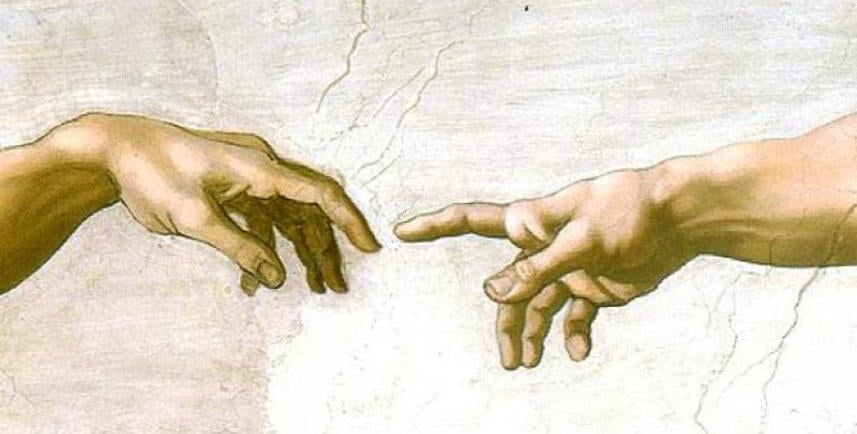Our Purpose on Earth: Evolution, Divinity, or Both?
What is our purpose on Earth? Are we merely the product of evolution, driven by biological instincts, or were we created by a divine force with a higher calling? This blog explores the philosophical question of why we exist, examining both evolutionary and spiritual perspectives. We’ll delve into whether these two views are mutually exclusive or interconnected, and consider the role humanity plays as stewards of the planet. Ultimately, our search for meaning might not lie in one answer but in a journey that blends nature, spirit, and responsibility.
9/26/20243 min read


Our Purpose on Earth: Evolution, Divinity, or Both?
The question of our purpose on Earth is one that has intrigued humanity for millennia. Are we here simply as a result of random evolutionary processes, driven by survival instincts and biological imperatives? Or was our existence willed by a higher power, a divinity that gave us a unique purpose? This philosophical quest transcends science and spirituality, leading us to consider the possibility that both evolution and divine purpose could play a role in shaping who we are and why we exist.
The Evolutionary Perspective: Biology and Instinct
From an evolutionary standpoint, humans are the product of billions of years of natural selection. We evolved alongside other species, adapting to our environment, developing cognitive abilities, and forming social structures to survive and thrive. In this view, life’s purpose is inherently tied to biological drives: the need to eat, procreate, protect ourselves, and ensure the survival of future generations.
Our instincts—to seek comfort, avoid pain, and find pleasure—could be seen as the forces that guide our behaviors. The complexity of human civilization, with its art, culture, and technology, could merely be an extension of these base instincts, finely tuned through centuries of evolution. By this account, we are no different from other species in our fundamental purpose: we exist to survive, evolve, and adapt.
But does this view offer the depth of meaning many seek? Can life’s purpose be distilled down to mere survival and replication? For many, the answer seems incomplete, as humans constantly yearn for something more, a sense of meaning that transcends the material and the biological.
The Divine Purpose: A Higher Calling?
If we turn to spirituality, we find a different lens through which to view our purpose. Nearly all major religions offer some narrative of creation, suggesting that humans were designed by a divine being or force, endowed with free will, intellect, and the ability to shape the world. In this narrative, we are more than just complex biological organisms; we are caretakers of the Earth, given moral and spiritual responsibilities.
In Christianity, humanity is described as made in the image of God and given stewardship over the Earth, entrusted with the responsibility to care for and sustain God's creation, as reflected in Genesis 1:28. The Qur'an, similarly, speaks of humans as "vicegerents" or stewards of creation, responsible for upholding justice and harmony in the world. In many Indigenous spiritual traditions, humans are seen as interconnected with the Earth, with a sacred duty to maintain balance within the natural world.
These spiritual perspectives offer a higher purpose beyond survival—one that calls for moral growth, compassion, and the caretaking of both people and the planet. We are not here by accident, they suggest, but by intention. Our lives serve a greater purpose, whether to cultivate virtues, fulfill divine commands, or participate in the cosmic order.
Are Evolution and Divinity Mutually Exclusive?
Do we have to choose between these two views—biological evolution or divine purpose? Some might argue that the two can coexist. Just as the intricate laws of nature govern the physical world, might not a divine intelligence have set these processes in motion?
From this perspective, evolution could be seen as the method through which a divine plan unfolds. We evolve, yes, but perhaps not aimlessly. The growth of human intellect, creativity, and moral conscience might suggest that our purpose is not just to survive, but to continuously develop into something greater. We are, after all, the only species known to seek out meaning in such profound ways, to contemplate the universe, and to envision futures beyond our immediate survival.
Our Role as Stewards of the Earth
Regardless of whether one believes in evolution, divinity, or both, there is a strong argument that we are uniquely equipped to be stewards of our planet. Our advanced intellect, capacity for empathy, and technological innovation make us powerful agents of change—for better or for worse. We have the ability to protect and preserve the Earth’s ecosystems, but also the capacity to destroy them.
This dual capacity comes with immense responsibility. Whether driven by evolutionary adaptation or divinely ordained purpose, humanity finds itself at a critical crossroads. Our collective choices regarding environmental sustainability, resource consumption, and social justice will shape the future not only for our species but for all life on Earth.
Perhaps, then, our purpose lies in finding harmony with the world around us. We may have evolved to dominate nature, but now we must evolve further—to live in balance with it.
